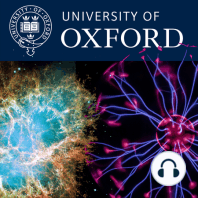40 min listen

Inflation and the Very Early Universe
Inflation and the Very Early Universe
ratings:
Length:
43 minutes
Released:
Mar 3, 2023
Format:
Podcast episode
Description
Inflation and the Very Early Universe - Georges Obied The universe we observe seems to have come from surprisingly fine-tuned initial conditions. This observation is at the heart of two of the most important puzzles in cosmology, called the horizon and flatness problems. To explain these puzzles, cosmologists invoke a period of accelerated expansion in the early universe (called inflation). As a bonus inflation, when considered with quantum mechanics, produces fluctuations in the energy density that become the galaxies, planets and other structures we see around us. In this talk, I will explain the motivation and physics of the inflationary paradigm. I am Leverhulme-Peierls Fellow at New College. Before coming to Oxford, I completed my PhD at Harvard University under the supervision of Prof. Cumrun Vafa. My research interests lie at the interface of particle physics, string theory and cosmology. At this junction, I work on various aspects of dark energy, dark matter and early universe cosmology from a fundamental physics point of view.
Released:
Mar 3, 2023
Format:
Podcast episode
Titles in the series (86)
Searches for Dark Matter: Members of the Rudolf Peierls Centre for Theoretical Physics hosted the 6th morning of Theoretical Physics covering the ways in which ideas from theoretical particle physics guide the high energy accelerator program at CERN. by Theoretical Physics - From Outer Space to Plasma